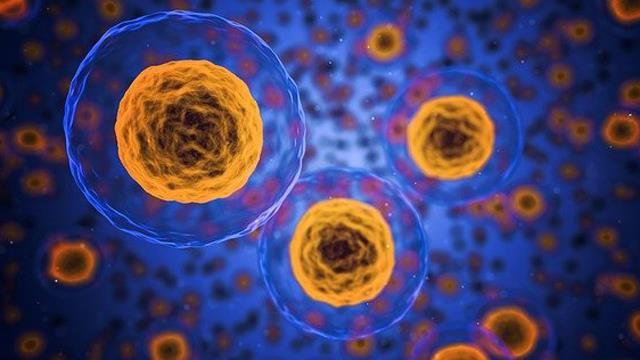A research team at Helmholtz Munich reports on a novel function of vitamin K, which is well known for its importance in blood clotting. Researchers discovered that the fully reduced form of vitamin K acts as an antioxidant and efficiently inhibits ferroptotic cell death. Ferroptosis is a natural form of cell death in which cellular iron plays an important role and is characterized by the oxidative destruction of cell membranes. In addition, the team identified FSP1 as the warfarin-insensitive enzyme that reduces vitamin K, the identity of which had been postulated but remained unknown for more than half a century.
In recent years, ferroptosis has been implicated as a driver of Alzheimer’s disease and acute organ injury, among many other diseases. Therefore, the present results suggest the concept that vitamin K treatment could be a new effective strategy to alleviate these ferroptosis-related diseases.
Vitamin K is a potent ferroptosis suppressor
Since the prevention of ferroptosis is considered a promising approach for the therapy of many degenerative diseases, new mechanisms and compounds that regulate ferroptosis are intensively explored. To identify these new molecules, a team of researchers led by Dr. Eikan Mishima and Dr. Marcus Conrad, both from the Institute for Metabolism and Cell Death at Helmholtz Munich, together with colleagues from the University of Tohoku (Japan), the University of Ottawa (Canada) and the Technical University of Dresden (Germany) systematically examined a number of naturally occurring vitamins and their derivatives. “Surprisingly, we found that vitamin K, including phylloquinone (vitamin K1) and menaquinone-4 (vitamin K2), is able to efficiently rescue cells and tissues from ferroptosis,” explained Dr. Eikan Mishima, first author of the study.
Dissolve the long-sought vitamin K-reducing enzyme FSP1
As early as 2019, a research team led by Dr. Marcus Conrad developed an enzyme as a novel and strong inhibitor of ferroptosis: the ferroptosis suppressor protein 1, FSP1 for short. The research team has now found that the fully reduced form of vitamin K (i.e. vitamin K hydroquinone) acts as a powerful lipophilic antioxidant and prevents ferroptosis by scavenging oxygen radicals in lipid bilayers. In addition, they identified that FSP1 is the enzyme that efficiently reduces vitamin K to vitamin K hydroquinone, thereby driving a novel non-canonical vitamin K cycle. Since vitamin K is critically involved in blood clotting processes, the team further showed that FSP1 is responsible for the vitamin K reduction pathway, which is insensitive to warfarin, one of the most commonly prescribed anticoagulants.
Breakthrough in understanding vitamin K metabolism
Unraveling the identity of this enzyme solved the final mystery of vitamin K metabolism in blood clotting and elucidated the molecular mechanism why vitamin K is the antidote to warfarin overdose. “Our results therefore connect the two worlds of ferroptosis research and vitamin K biology. They will serve as a springboard for the development of novel therapeutic strategies for ferroptosis-related diseases,” emphasized Dr. Marcus Conrad. In addition, since ferroptosis is most likely one of the oldest types of cell death, the researchers hypothesize that vitamin K may be one of the oldest types of naturally occurring antioxidants. “Therefore, new aspects of the role of vitamin K in the overall evolution of life should be uncovered,” explained Dr. Marcus Conrad.
Relation: Mishima E, Ito J, Wu Z, et al. A non-canonical vitamin K cycle is a potent ferroptosis suppressor. Nature. 2022:1-6. doi: 10.1038/s41586-022-05022-3
This article was republished from the following materials. Note: The material may have been edited for length and content. For more information, please refer to the given source.
#Vitamin #prevents #cell #death


Leave a Comment